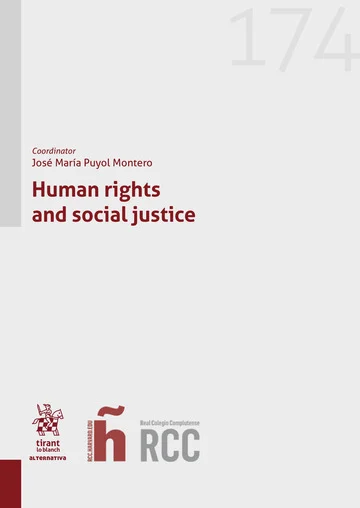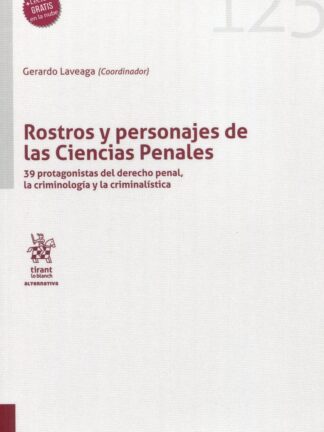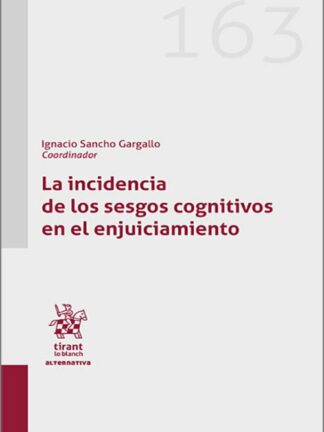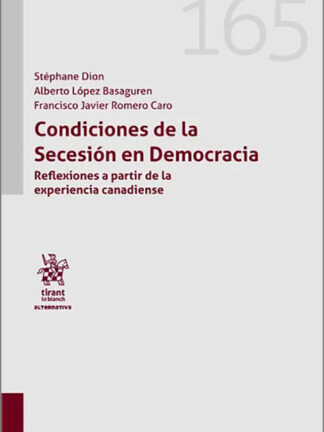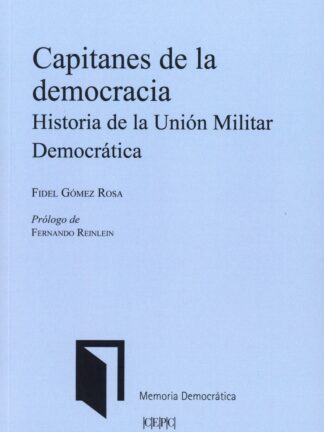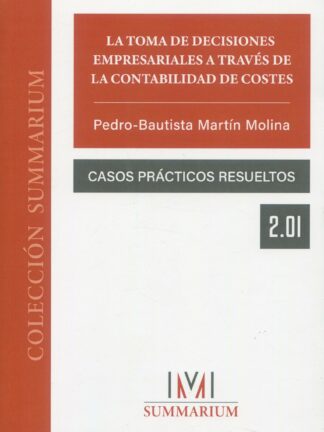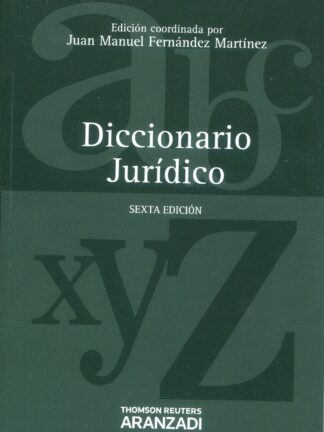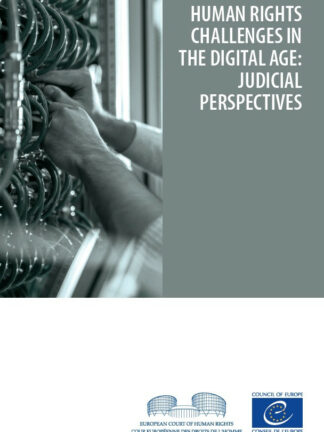Descripción
Human rights and social justice
On June 23th 2023 a seminar was organized by RCC Study Group ¨Studies on Life and Human Dignity¨ at Harvard Law School (Cambridge, Massachusetts). The seminar ?Human Dignity, Social Justice and Human Rights? was to gather well-renowned professors from different fields of science from prestigious European and American universities. The aim of the encounter was to analyze and study the concept of human dignity in life and at the end of life, and some of its manifestations and potential threats in today?s world.
In the last decades, a spectacular development in the diverse fi elds of science, economy, trade and communications has taken place in society. These advances in human progress, as laudable as they may be, often do not eff ectively correspond to parallel recognition of every man and woman?s human dignity. In fact, in many cases, this progress results in a series of contradictions and possible dangers and challenges.
This book brings together a selection of papers presented at that seminar, regarding the big issue of human dignity and law.
Index
Preface
Introduction. Working for Human Dignity, Social Justice and Human Rights
The Semantic Richness of the Notion of Dignity
Inequality as a Foundation of Dignity and Right
Dignity and Indignity before the Spanish Inquisition
Saving their Souls. The Iberian Origins of London’s First Jewish Mendoza Family
Human Rights or Reason of State. A Consultation of the Royal Council of Castile on the Abolition of Slavery (1825)
The Dignity of Workers and the French Revolution of 1848
From Social Dignity to Human Dignity in the Construction of the European Union
Problems for the Introduction of Caregiving in the Dogmatics of Civil Law: Criticism of its Use to Justify the Institution of the Reserved Shares of the
State as a Limitation to the Freedom of Testament
Conscientious Objection to Abortion and Non-Discrimination of Health Professionals
Exploring the Idea of Dignity Throughout the Definition of Decent and Adequate Housing
RCC Study Group. «Studies on Life and Human Dignity»
COORDINADOR: JOSÉ MARÍA PUYOL MONTERO
MÁS TÍTULOS RELACIONADOS: DERECHOS HUMANOS
Preface …………………………………………………………………………………………….. 15
José Manuel Losada
Introduction. Working for Human Dignity, Social Justice and Human Rights …………………………………………………………………………………………….. 17
The Semantic Richness of the Notion of Dignity…………………………………… 21
Francesc Torralba
I. ABOUT THE CONCEPT OF DIGNITY…………………………………………. 21
II. ORIGIN OF THE CONCEPT…………………………………………………….. 23
III. THE MORAL CONCEPT OF DIGNITY………………………………………… 27
IV. THE FOUNDATIONS…………………………………………………………….. 29
4.1. Criticism of the foundation on rational character…………………………… 29
4.2. The moral foundation………………………………………………………… 31
4.3. The conditions of moral autonomy………………………………………….. 32
V. SEMANTIC BREADTH OF THE CONCEPT OF DIGNITY……………………. 33
VI. CONCLUSION……………………………………………………………………. 34
VII. BIBLIOGRAPHY………………………………………………………………….. 35
Inequality as a Foundation of Dignity and Right…………………………………… 37
C
arlos Arenas-Laorga
I. INEQUALITY AS A FOUNDATION OF DIGNITY AND RIGHT……………… 38
II. BIBLIOGRAPHY………………………………………………………………….. 57
Dignity and Indignity before the Spanish Inquisition……………………………. 59
María-Jesús Torquemada Sánchez
I. A FEW REMARKS ON THE SUBJECT………………………………………….. 59
II. INDIGNITY AS A STARTING POINT……………………………………………. 73
III. SOME PARTICULAR CASES…………………………………………………….. 74
IV. BIBLIOGRAPHY………………………………………………………………….. 85
Saving their Souls. The Iberian Origins of London’s First Jewish Mendoza
Family …………………………………………………………………………………………….. 87
Neil Solomon
Beryl B. Solomon
I. INTRODUCTION………………………………………………………………… 88
II . OUR RESPONSE TO THE QUESTIONABLE WHO DO YOU THINK YOU ARE?
CLAIM……………………………………………………………………………… 90
III. DISCOVERING THE CRYPTO-JEWISH DIAZ ARIAS Y GONÇALEZ DE MENDOÇA
FAMILY OF PASTRANA…………………………………………………. 94
I V. ANTONIO DE MENDOZA’S 18TH CENTURY APPEARANCE IN AMSTERDAM………………………………………………………………………………..
102
V. THE JEWISH MENDOZAS’ 18TH CENTURY MIGRATION FROM AMSTERDAM
TO LONDON………………………………………………………………. 105
VI. THE ANCESTORS OF ISABEL GONÇALES DE MENDOÇA OF PASTRANA. 107
VII. CONCLUSION……………………………………………………………………. 112
VIII. BIBLIOGRAPHY………………………………………………………………….. 115
Human Rights or Reason of State. A Consultation of the Royal Council of
Castile on the Abolition of Slavery (1825)…………………………………………….. 117
José-María Puyol Montero
I. INTRODUCTION………………………………………………………………… 118
II. THE LEGAL OPINION OF THE CROWN ATTORNEYS OF THE ROYAL
COUNCIL OF CASTILE ON THE VIABILITY OF ABOLISHING SLAVERY IN
SPAIN IN 1825…………………………………………………………………. 122
III. THE LEGAL OPINION OF THE ROYAL COUNCIL OF CASTILE IN FULL
COUNCIL…………………………………………………………………………. 125
IV. DOCUMENTARY APPENDIX……………………………………………………. 129
The Dignity of Workers and the French Revolution of 1848……………………. 133
Jean-Baptiste Busaall
I. INTRODUCTION………………………………………………………………… 134
II. WORKERS’ RIGHTS AND HUMAN DIGNITY: THE APORIAS OF THE REVOLUTIONARY
LEGACY…………………………………………………………… 140
1.1. Freedom to work and the supervision of workers between 1789 and 1848.. 140
1.2. The political issues of the collective organization of work………………….. 147
III. WORKERS AND THE SECOND REPUBLIC: FROM THE CENTER TO THE
MARGINS………………………………………………………………………….. 153
3.1. The policies of the Second Republic in favor of workers…………………… 153
3.2. The return of workers to the category of social danger…………………….. 158
IV. BIBLIOGRAPHY………………………………………………………………….. 163
From Social Dignity to Human Dignity in the Construction of the European
Union …………………………………………………………………………………………….. 167
Sylvain Bloquet
I. INTRODUCTION………………………………………………………………… 168
II. AN EARLY SOCIAL DIGNITY, ASSOCIATED WITH ECONOMIC VALUES…. 171
III. A LATE AUTONOMY OF HUMAN DIGNITY………………………………….. 181
IV. CONCLUSION……………………………………………………………………. 189
V. BIBLIOGRAPHY………………………………………………………………….. 190
Problems for the Introduction of Caregiving in the Dogmatics of Civil Law:
Criticism of its Use to Justify the Institution of the Reserved Shares of the
State as a Limitation to the Freedom of Testament………………………………… 193
Joaquín-María Rivera Álvarez
I. INTRODUCTION: EXAMINATION OF THE POSITIONS THAT GIVE RELEVANCE
TO PERSONAL CARE IN THE CIRCLE OF THE “LEGÍTIMA”………. 194
II. SYSTEMATIC ANALYSIS OF PERSONAL CARE IN OUR COMMON AND
PRIVATE LEGAL SYSTEM……………………………………………………….. 201
2.1. In relation to the idea of personal care, we consider definitions from two
sources, one legislative and the other doctrinal…………………………….. 202
2.2. Secondly, we must enter into the consideration of whether our common private
system and, specifically, our Family and Inheritance Law can accommodate a
rule of personal care, as a duty………………………………………………. 208
III. POSSIBILITIES OF INCORPORATION OF PERSONAL CARE AS A RIGHT OR
AS LEGAL, NON-CONVENTIONAL COMPENSATION IN THE PRIVATE,
INHERITANCE OR FAMILY LAW……………………………………………. 212
3.1. Criticism to the extension and concretion of the human right to personal
care or to provide care, the possibility of being configured as compensation
for the giver………………………………………………………………….. 212
3.2. The compensation of the care and the freedom of testament: technical legal
problems to establish it as a justification of the “legitima” or, indirectly, of a
cause of unworthiness or disinheritance…………………………………….. 218
3.3. Personal care and family solidarity: Individual and socio-health conditions
for care and attention………………………………………………………… 226
IV. CONCLUSIONS…………………………………………………………………… 227
V. BIBLIOGRAPHY………………………………………………………………….. 229
Conscientious Objections in the Americas……………………………………………. 233
Javier Martínez-Torrón
I. CONSCIENTIOUS OBJECTIONS AND FREEDOM OF CONSCIENCE……… 234
II. A DIVERSE PANORAMA………………………………………………………… 237
III. ESSENTIAL LEGAL COORDINATES FOR THE LEGAL TREATMENT OF
CONSCIENTIOUS OBJECTION………………………………………………… 238
3.1. The right to behave in accordance with one’s own moral principles……….. 238
3.2. Acceptance of the ethical diversity of citizenship…………………………… 239
3.3. Limiting freedom of conscience only to the extent that is strictly necessary. 240
3.4. An adequate assessment of conflicting legal interests………………………. 242
IV. CONSTITUTIONAL, LEGISLATIVE AND JUDICIAL RECOGNITION OF
CONSCIENTIOUS OBJECTION………………………………………………… 243
V. CONSCIENTIOUS OBJECTIONS THAT REQUIRE PARTICULAR
ATTENTION TODAY……………………………………………………………. 252
5.1. Objection to military service………………………………………………… 252
5.2. Objection to abortion and euthanasia……………………………………….. 257
5.3. Conscientious objections in the area of education………………………….. 264
VI. SHOULD FREEDOM OF CONSCIENCE ALSO BE RECOGNIZED FOR INSTITUTIONS?……………………………………………………………………….
271
VII. CONCLUDING REMARKS………………………………………………………. 274
Conscientious Objection to Abortion and Non-Discrimination of Health
Professionals…………………………………………………………………………………….. 277
Santiago Cañamares Arribas
I. INTRODUCTION………………………………………………………………… 277
II. DISCRIMINATION OF CONSCIENTIOUS OBJECTORS TO ABORTION…… 283
III. HEALTHCARE ENTITIES AND DISCRIMINATION AGAINST WORKERS ON
THEIR CONVICTIONS…………………………………………………………… 286
3.1. Discrimination against conscientious objectors to abortion………………… 286
3.2. Ethos-based entities and discrimination against health personnel………….. 289
3.2.1. Scope of application………………………………………………….. 289
3.2.2. “Pro-life” convictions as a professional requirement………………… 291
3.2.3. The imposition of duties of loyalty on healthcare professionals……. 296
IV. FINAL REMARKS…………………………………………………………………. 298
V. REFERENCES……………………………………………………………………… 300
Exploring the Idea of Dignity Throughout the Definition of Decent and
Adequate Housing…………………………………………………………………………….. 303
María-Luisa Gómez Jiménez
I. INTRODUCTION………………………………………………………………… 304
II. GOING BACK AND FORTH WITH THE CONCEPT OF DECENT AND ADEQUATE
HOUSING IN THE SPANISH HOUSING ACT 2023………………….. 304
III. CONCLUSIONS…………………………………………………………………… 332
IV. BIBLIOGRAPHY………………………………………………………………….. 333
On the Necessary Legal Framework for Artificial Intelligence………………… 335
Manuel Estepa Montero
I. INTRODUCTION: DIAGNOSIS OF THE CURRENT SITUATION…………… 336
II. THE OPPORTUNITIES AND CHALLENGES OF ARTIFICIAL INTELLIGENCE…………………………………………………………………………………..
339
III. THE ELABORATION OF THE NECESSARY LEGAL FRAMEWORK FOR ARTIFICIAL
INTELLIGENCE BY THE EUROPEAN UNION…………………….. 341
3.1. Analysis of the content of the European Commission’s proposal for a Regulation
on AI…………………………………………………………………… 342
3.2. Examination of the main changes made by the Council to the Commission’s
proposal on the AI Regulation……………………………………………….. 346
3.3. The European Parliament’s position on the proposal for an AI Regulation… 348
IV. CONCLUSIONS…………………………………………………………………… 356
V. BIBLIOGRAPHY………………………………………………………………….. 358
RCC Study Group. «Studies on Life and Human Dignity»………………………. 361

